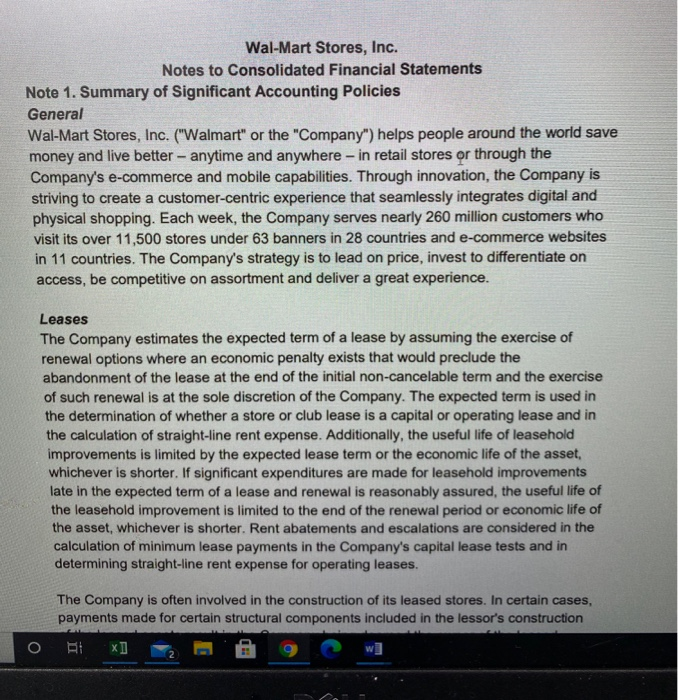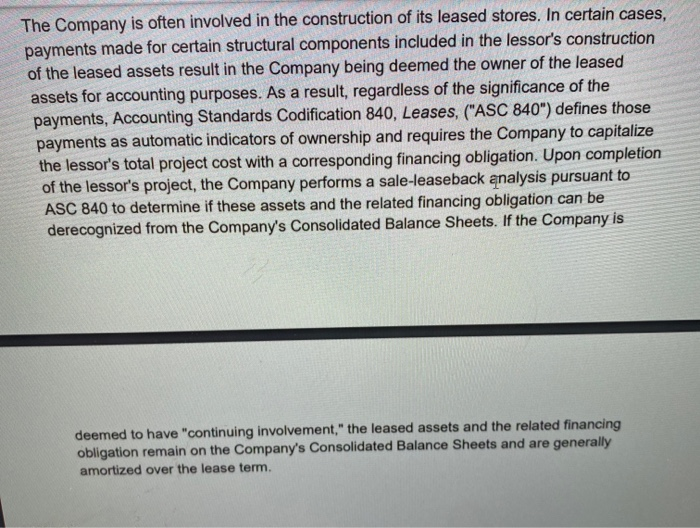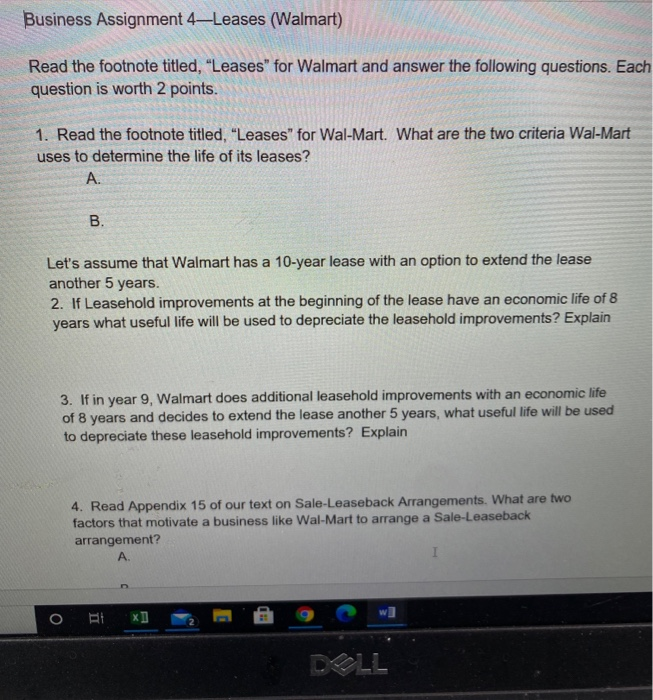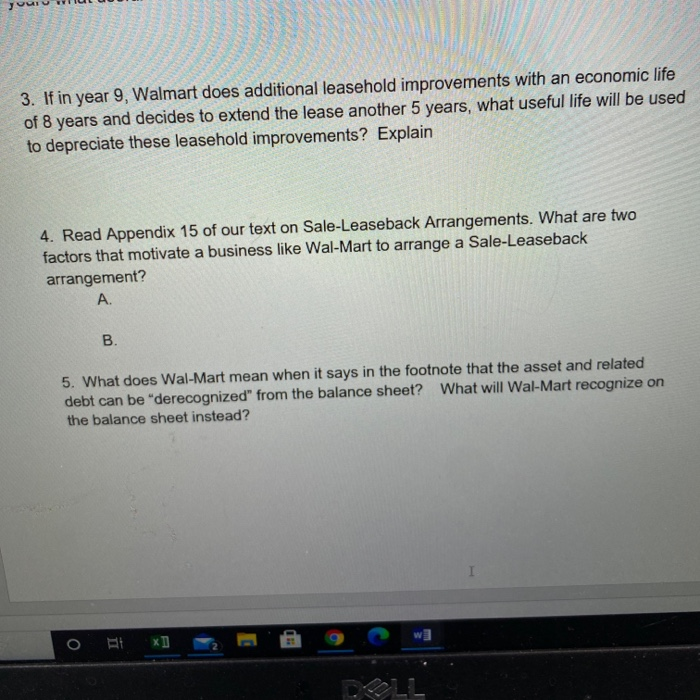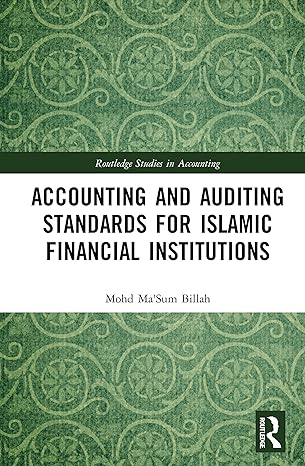Wal-Mart Stores, Inc. Notes to Consolidated Financial Statements Note 1. Summary of Significant Accounting Policies General Wal-Mart Stores, Inc. ("Walmart" or the "Company") helps people around the world save money and live better - anytime and anywhere - in retail stores or through the Company's e-commerce and mobile capabilities. Through innovation, the Company is striving to create a customer-centric experience that seamlessly integrates digital and physical shopping. Each week, the Company serves nearly 260 million customers who visit its over 11,500 stores under 63 banners in 28 countries and e-commerce websites in 11 countries. The Company's strategy is to lead on price, invest to differentiate on access, be competitive on assortment and deliver a great experience. Leases The Company estimates the expected term of a lease by assuming the exercise of renewal options where an economic penalty exists that would preclude the abandonment of the lease at the end of the initial non-cancelable term and the exercise of such renewal is at the sole discretion of the Company. The expected term is used in the determination of whether a store or club lease is a capital or operating lease and in the calculation of straight-line rent expense. Additionally, the useful life of leasehold improvements is limited by the expected lease term or the economic life of the asset, whichever is shorter. If significant expenditures are made for leasehold improvements late in the expected term of a lease and renewal is reasonably assured the useful life of the leasehold improvement is limited to the end of the renewal period or economic life of the asset, whichever is shorter. Rent abatements and escalations are considered in the calculation of minimum lease payments in the Company's capital lease tests and in determining straight-line rent expense for operating leases. The Company is often involved in the construction of its leased stores. In certain cases, payments made for certain structural components included in the lessor's construction O PIX] The Company is often involved in the construction of its leased stores. In certain cases, payments made for certain structural components included in the lessor's construction of the leased assets result in the Company being deemed the owner of the leased assets for accounting purposes. As a result, regardless of the significance of the payments, Accounting Standards Codification 840, Leases, ("ASC 840") defines those payments as automatic indicators of ownership and requires the Company to capitalize the lessor's total project cost with a corresponding financing obligation. Upon completion of the lessor's project, the Company performs a sale-leaseback analysis pursuant to ASC 840 to determine if these assets and the related financing obligation can be derecognized from the Company's Consolidated Balance Sheets. If the Company is deemed to have "continuing involvement," the leased assets and the related financing obligation remain on the Company's Consolidated Balance Sheets and are generally amortized over the lease term. Business Assignment 4-Leases (Walmart) Read the footnote titled, "Leases" for Walmart and answer the following questions. Each question is worth 2 points. 1. Read the footnote titled, "Leases for Wal-Mart. What are the two criteria Wal-Mart uses to determine the life of its leases? A. B. Let's assume that Walmart has a 10-year lease with an option to extend the lease another 5 years. 2. If Leasehold improvements at the beginning of the lease have an economic life of 8 years what useful life will be used to depreciate the leasehold improvements? Explain 3. If in year 9, Walmart does additional leasehold improvements with an economic life of 8 years and decides to extend the lease another 5 years, what useful life will be used to depreciate these leasehold improvements? Explain 4. Read Appendix 15 of our text on Sale-Leaseback Arrangements. What are two factors that motivate a business like Wal-Mart to arrange a Sale-Leaseback arrangement? A. I BE DOLL 3. If in year 9, Walmart does additional leasehold improvements with an economic life of 8 years and decides to extend the lease another 5 years, what useful life will be used to depreciate these leasehold improvements? Explain 4. Read Appendix 15 of our text on Sale-Leaseback Arrangements. What are two factors that motivate a business like Wal-Mart to arrange a Sale-Leaseback arrangement? A B. 5. What does Wal-Mart mean when it says in the footnote that the asset and related debt can be "derecognized" from the balance sheet? What will Wal-Mart recognize on the balance sheet instead? o
